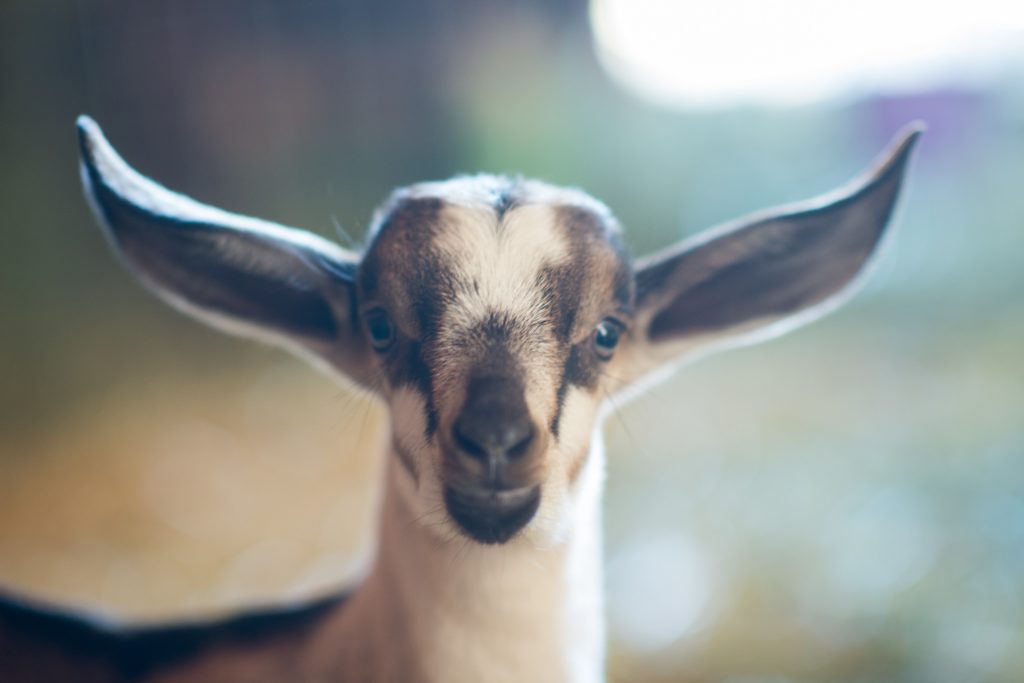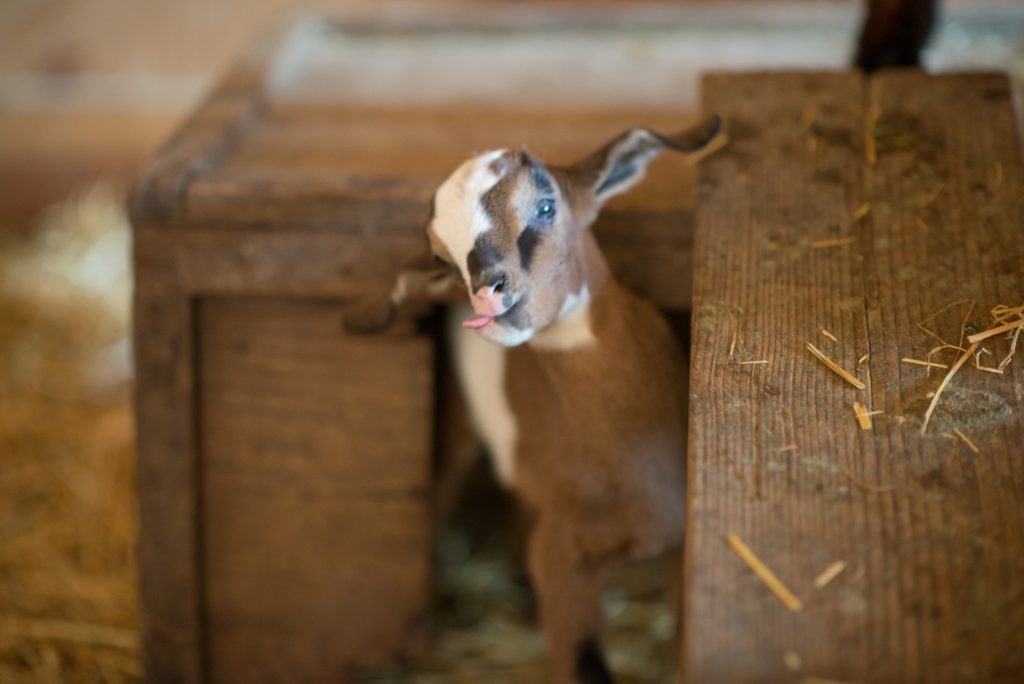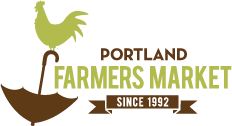Are you kidding? Yep, at Fraga Farmstead Creamery it’s definitely kidding season! Market Manager David Oberstein and I are both new to Portland Farmers Market. We like our jobs, but we LOVED our jobs on the day we visited Fraga Farmstead Creamery, an organic goat cheese farmstead nestled into Gales Creek Valley. For those not familiar, kidding season is when the farm is overrun with baby goats!
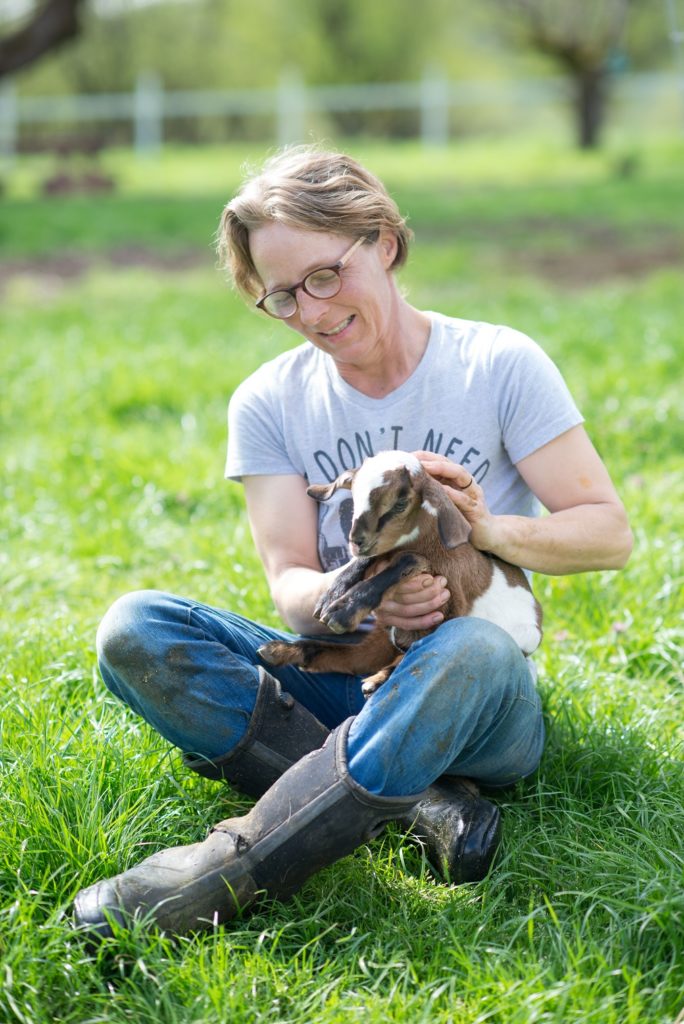
Fraga Farm owners Steve Monahan and Elisabeth Bueschen-Monahan (‘Lise’ for short) seem to never stop working. As soon as we arrived Lise invited us to watch as she finished up that morning’s milking process. She opened a gate in the center of the barn and eight doe goats rushed to the milking parlor. The parlor holds eight stalls filled with organic grains, garlic, seaweed, and minerals – a treat for any goat. Most does know food awaits them so they trot to their appointed stalls. The smarter does muscle their way to the front of the pack and grab a tasty bite from each stall as they move quickly down the row.
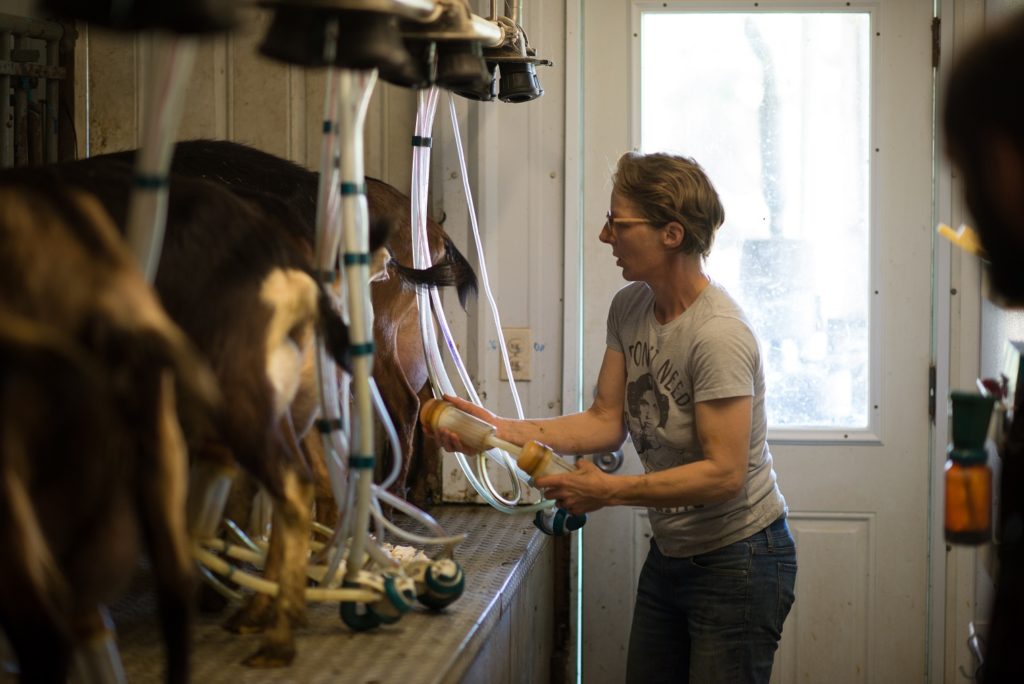
Like a smooth dance of constant movement, Lise’s fingers floated among tubes and goat teats, milking four does at a time. Just minutes later, Lise opened the door to the outside and the freshly milked does rushed out to frolic, carrying a much lighter load. As the next eight goats lined up, she patted the rump of a particular doe. “Careful,” she warned us. “After milking, this one will run towards you instead of outside; she’s always looking for food.” Sure enough, when released from her stall, toward us she charged on a mission to find the feed bag. Lise moved the bag out of reach of the doe but then offered a handful of treats for her troubles.
Predicting a goat’s behavior is common practice for Lise, who takes her role as shepherd very seriously. Her deep sense of care and responsibility for every goat in the 100-strong herd means she knows the names, personalities, and preferences of each one of them. Careful watching and reading behavior ensures Lise has goats that are relaxed, healthy, and happy.
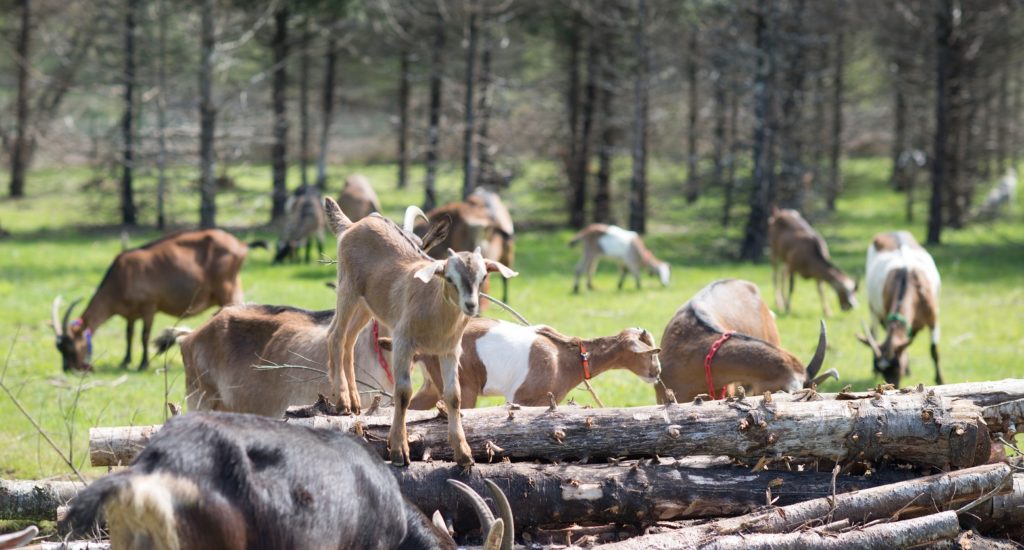
Since taking over the farm in 2012, there have been thousands of decisions to make about running their operation and it’s clear that Steve and Lise keep what’s best for the herd as their top priority. Continuing their commitment to keep the farm organic is no small feat. It’s the right choice for the quality of milk, the environment, and most importantly, it creates the best life for their goats. Additionally, Lise explained that the two milkings a day is a conscious choice that allows the goats to feel comfortable. She loves watching them jump around on logs in the pasture and noticed that when they’re too engorged, they don’t frolic as much. Milk them too often and they’ll overproduce, causing uncomfortable engorgement. Twice-a-day milking seems to offer the best all-around balance for their quality of life.
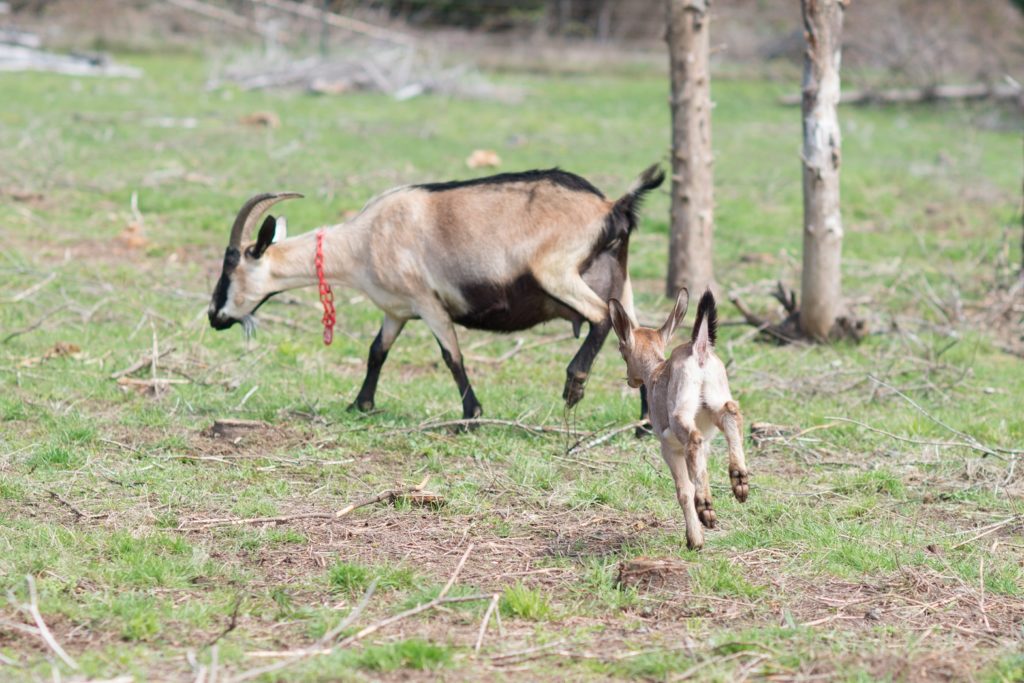
Fraga Farm cares for every member of their herd, at every stage of life. Common practice is to remove the babies from the mothers right away, but Lise can see that the does are happier and more relaxed when they get to rear their young. Lise has noticed, however, that after a few weeks does become fatigued and are thankful for a full night’s sleep so she puts the babies in their own pen at night. Occasionally, a doe will be distraught without her kid, so Lise keeps those pairs together all the time. All does in their milking herd were raised by their mother right there at the farm. As for the males, it’s also common practice to euthanize baby boy goats but Steve and Lise never euthanize healthy kids. Many of the baby boys learn to take a bottle after a few weeks and are adopted out as much-loved pets. The older does, who are past their milking stage, have encore careers as pasture pets and blackberry bush eliminators.
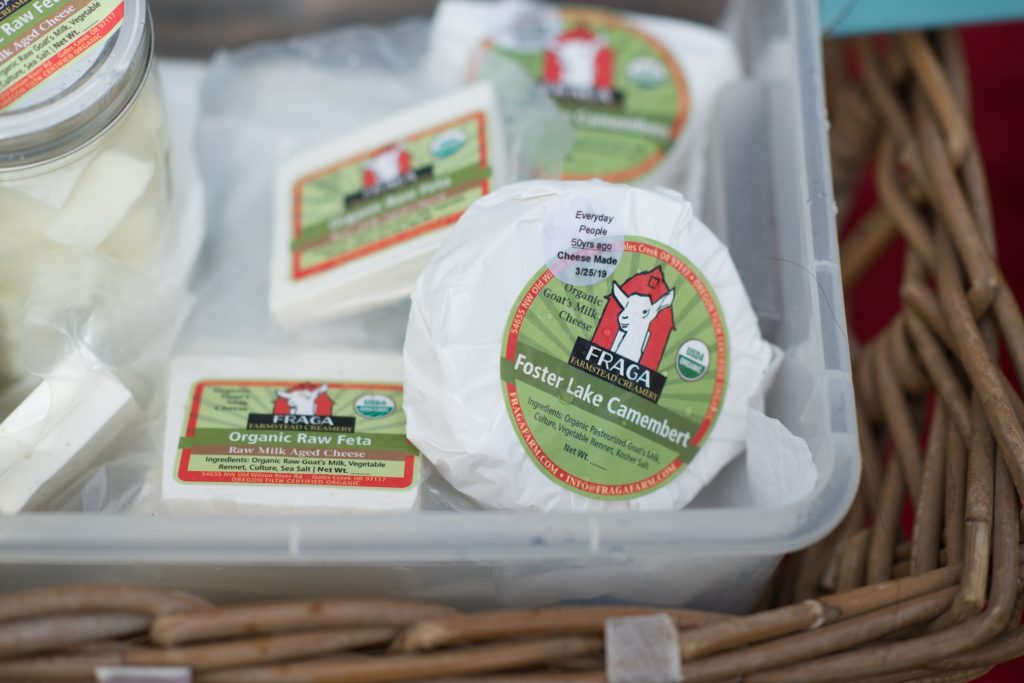
Steve and Lise’s care for their animals extends beyond the barnyard into their award-winning cheeses as well. Goat’s milk has smaller, more fragile fatty molecules than cow’s milk, making it more digestible for humans; however, those fragile molecules can burst, resulting in sharper, more acidic goat cheese if they’re not handled with care. At Fraga Farms, Steve and Lise rely on a clever gravity system to gently usher the milk from the milking parlor to the milk house, where it’s immediately refrigerated then pasteurized. Steve adds cultures and microbial coagulant to the milk, lets it ripen, then cuts the curd. From there he hangs, cooks and presses the curd into molds to mature into Fraga Farmstead Creamery’s premium goat cheese.
Lise and Steve’s expertise does not stop at goats and cheese. For them, the health of the whole farm is a priority, all the way down to the soil. For example, they are creating and using biochar, a type of charcoal derived from dead trees without releasing greenhouse gases, to improve soil fertility.
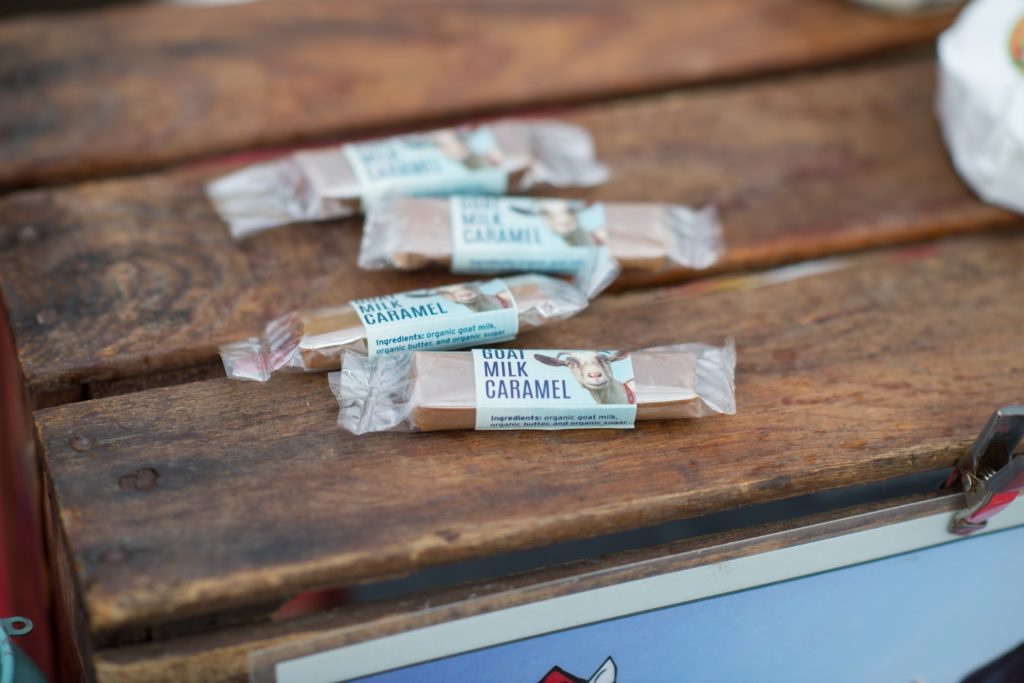
Come try Fraga Farmstead Creamery goat cheese on Saturdays at our PSU Farmers Market and taste the care they share for yourself. You can’t go wrong with any of their products, including three types of Chèvre, Farmhouse, Raw Aged Feta, and even their melt-in-your-mouth caramels. (Pro tip: Stir the caramels into your coffee in lieu of creamer!)
Thank you for having us, Steve and Lise!
To learn more about Fraga Farmstead Creamery, visit their website at fragafarm.com or stop by their booth at the PSU Farmers Market on Saturday.
